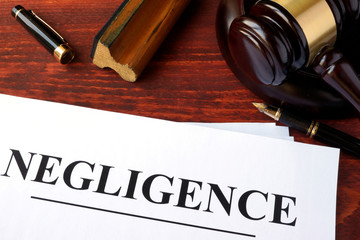Negligence plays an important role in all personal injury cases. Understanding negligence and the components that go into it can help individuals navigate the complex legal system and better pursue compensation for their accident and injuries. A Long Island personal injury lawyer can help you better understand the legal process and protect your rights. Contact a skilled attorney today.

What is Negligence?
Negligence is a vitally important part of personal injury law that is essential in determining liability and compensation. It refers to an individual’s failure to exercise the care that a reasonable person would if they were in similar circumstances. This failure results in harm or injury to another person.
How is Negligence Established?
Several elements must be proven to establish a defendant’s negligence. Consider the following.
- Duty of care. The defendant must have owed a duty of care to the plaintiff or victim. This duty can be a result of various contexts. For example, drivers owe a duty of care to other drivers and pedestrians on the road to operate their vehicles safely and avoid collisions. Property owners may owe a duty of care to their visitors to ensure a reasonably safe environment.
- Breach of duty. It must be proven that the defendant breached their duty of care to the plaintiff by failing to act like a reasonable person would. A driver can breach their duty of care by running a red light or driving while intoxicated. Property owners can breach their duty by neglecting to fix or warn visitors about a hazard on their property.
- Causation. It must also be demonstrated that the breach of duty directly caused the plaintiff’s injury or damages. There must be a way to show how the defendant’s actions or inaction led to the accident.
- Damages. The plaintiff must have suffered actual harm or damage due to the breach of duty. This may include injury, emotional distress, property damage, lost wages, and more.
What Role Does Negligence Play in a Personal Injury Case?
Negligence is crucial in personal injury cases. Establishing negligence can help determine liability and compensation that the plaintiff is owed.
A court will only award the plaintiff compensation if liability can be proven. Once evidence is provided that establishes the defendant’s negligent actions, they can be held liable for the resulting injuries, expenses, and damages of the victim. Without first proving negligence the defendant cannot be held responsible.
Negligence is also important when calculating compensation. Once negligence is proven the court or insurance provider will assess the extent of damages that the plaintiff suffered and calculate how much compensation they are entitled to. The degree of negligence can impact the amount of damages that the plaintiff is awarded.

